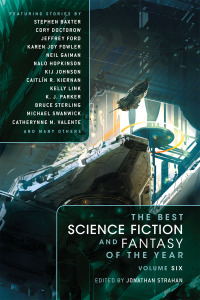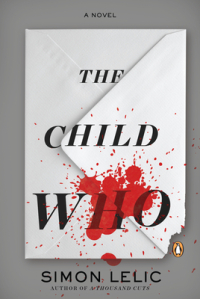Force of Nature by C.J. Box
 Friday, March 16, 2012 at 4:55PM
Friday, March 16, 2012 at 4:55PM 
Published by Putnam on March 20, 2012
Force of Nature is much better than the last Joe Pickett novel, which was so full of plot holes that it made for an awfully bumpy ride. Force of Nature focuses on Nate Romanowski, who is finally facing a showdown with rogue elements of “The Five,” a group of Special Forces operatives to which Romanowski once belonged. Their leader, a megalomaniac named Nemecek, wants to take Romanowski out. To that end, Nemecek recruits three amateur assassins who approach Romanowski in a boat. Pickett becomes involved when a fisherman discovers a boat full of corpses. With the sheriff he despises nipping at his heals, Pickett finds himself facing the uncomfortable choice of pursuing or helping his buddy Romanowski.
Romanowski is a falconer and so is Nemecek. C.J. Box appears to have done meticulous research into the art of falconry. His descriptions of a falconer’s mindset are convincing. The symbolic parallel between the falcon that hunts other birds and the dangerous man who hunts Romanowski might be a bit obvious but it’s nonetheless an effective device for telling the story. Romanowski’s relationship with falcons and the role they play in his connection with Nemecek is the most interesting part of the novel.
Pickett appeals to readers because (in Romanowski’s words) Pickett is “straight and upright and burdened with ethics, responsibility, and a sense of duty.” Romanowski also has a sense of ethics, but “straight and upright” he is not. Romanowski has a sort of spirituality -- he tells us that he is of the Earth, not walking upon it -- and pursues falconry to get closer to “the primitive world.” Romanowski is unquestionably primitive. He keeps a braid of his dead lover’s hair dangling from his gun -- which is strange, but Romanowski is a strange dude, machismo on steroids. That makes him (in this novel, at least) an interesting character, although Box sometimes takes him a bit over the top.
By contrast, when Box writes about Pickett, the reader is treated to a strong, silent man. When he doesn’t know what to say (which is often), he looks down at his boots. The boot gazing wears a bit thin after a few novels. At least Romanowksi forces Pickett out of the rather dull (from a reader’s perspective) black-and-white world in which he prefers to dwell. Romanowski doesn’t worry much about hunting season or game permits as he kills his evening meal, the kind of attitude that Pickett, in his role as game warden, frowns upon, but Pickett gives his friend Romanowski a pass for his many transgressions (revenge killing among them). Pickett’s discomfort -- his attempt to have it both ways by refusing to listen when Romanowski wants to confess his sins -- exposes his willingness to engage in situational ethics when it comes to friendship and thus humanizes him.
As is so often true in thrilerworld, the story suffers from credibility issues. It feeds upon the popular paranoid delusion that the government has the ability to intercept and erase all digital communications (including emails and website postings) that mention a particular subject or person. Romanowski should know better. It’s also hard to accept that a trained operative like Romanowski would be wedded to the belief that “torture works” when most serious students of interrogation agree that torture produces inaccurate information. Romanowski even makes a bizarre speech about the “savagery in the streets” America would experience if not for the underappreciated tough guys who torture the evildoers in faraway lands. Finally, I didn’t believe for a moment the romance that develops late in the story. On the other hand, Romanowski’s dark secret, when finally revealed, is believable if anti-climactic, although his explanation for failing to blow the whistle on Nemecek makes little sense.
Credibility problems aside, Force of Nature tells an enjoyable story. The action scenes are fun, the pace is swift, and the parallel plotlines come together nicely in the end (with, of course, the obligatory but unusually clever shoot-out).
RECOMMENDED
 TChris |
TChris |  Post a Comment |
Post a Comment |  C.J. Box,
C.J. Box,  Recent Release in
Recent Release in  Thriller
Thriller 


